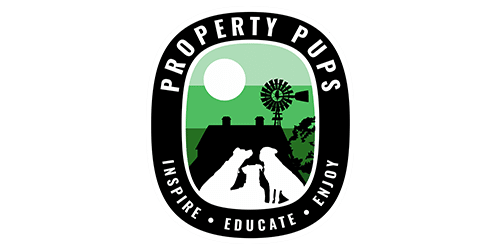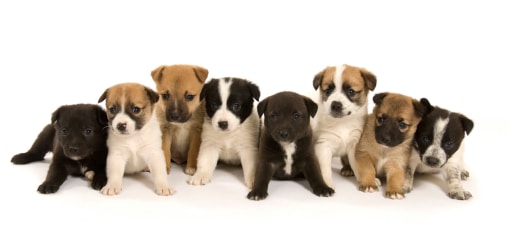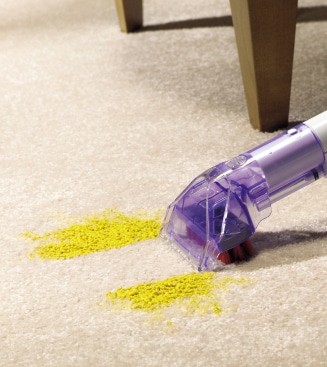Puppy Pre-school

PUPPY PRESCHOOL INFORMATION
Puppy Preschool is the best first step you can take towards a social and confident pup. Classes focus on being fun, informative and interactive, helping you and your canine companion navigate this new life you are creating together.
Classes are run in 4 week sessions every month on Wednesday evenings. We have two classes available Puppy Preschool 6:30-7:30pm for any pup aged 8-20wks and Puppy Primary School 7:30-8:30pm for any pup aged >20wks upto 1yr. If you have any concerns due to your pups size, behaviour or demeanour please don’t hesitate to ask. The most suitable class will be chosen for your pup at the time of booking.
To save your place in a class a non-refundable deposit of $25 for our Prelim Package or a $75 for our Premium Package is required at the time of booking. Bookings can be made over the phone or in person at the clinic prior to the first night.
On the first night…
For the first night of training you will need to bring three items with you.
- A comfy bed or blanket for your pup to sit on.
- Some tasty treats in a treat pouch or secure container.
(Treats can be just their normal biscuits if they are willing to work for them. Please inform our trainer if your pup has an allergy or medical condition that may be affected by food rewards).
- Your pups most recent vaccination certificate.
(If you are a client of the clinic this may be stored on a digital file and does not need to be brought with you)
All pups MUST be on a lead for all training sessions. Time will be allocated for socialisation & even off leash playtime if suitable to do so.
For any further questions or concerns prior to booking please contact Property Pups on 0439 861 024 or via email at propertypuptraining@gmail.com.
If you have no further questions or concerns you can make a booking & pay your deposit via the clinic by phone (02) 4392-8822 or in person. We look forward to meeting you all soon!
NOTE: Covid-19 may impact class numbers or the ability of classes to run. You will be notified of any changes.
By about 10-12 weeks, your puppy will be developing a little personality and you will start to notice your puppy growing before your eyes.
It is time to start thinking about training. A puppy’s mind is like a “sponge” before the age of 16-weeks and it is ready to soak up new experiences and learn new commands. Placing time and effort into training now can have huge benefits later on. It is also the best time to encourage and reward appropriate behaviour as puppies learn best with a positive reward.
Socialisation is another vital component to making sure your puppy gets the best start to life. Remember that your puppy has not yet been given all the necessary vaccinations so it is important you only mix your pup with dogs that are up to date with vaccinations. Puppy Pre-School is a perfect opportunity for this.
You should think about signing your puppy up to a puppy pre-school class in your local area now. Ask your Veterinarian for more information.
A Great Start To Life With Puppy Pre-School
Puppy Preschool helps teach your pup good manners and socialisation. This results in a confident and friendly adult dog and a happy and relaxed owner.
Puppy Preschool’s main aims are:
- To socialise your puppy so it is comfortable with other dogs and people.
- Teach your puppy basic commands and good manners.
- Help provide you with tips for puppy development and basic pet care.
- To provide fun and help so your puppy enjoys future visits to the vet.
Vaccinations will need to be up to date for your pup to be eligible to join the classes.
Tips to Get Your Puppy To Sit
Sit is one of the most basic but most important commands your puppy will learn.
The steps are simple:
- Begin by holding a treat in front of your puppy’s nose to gain his or her attention.
- When you have your puppy’s focus slowly raise the treat upward and then over his or her head. This should make your puppy follow the treat with their sight, consequently tilting their head backward. (Be sure to hold the treat close to your puppy’s nose or otherwise you may find she will jump to reach the treat.)
- As the head follows the treat backwards your puppy’s bottom should eventually hit the ground, establishing the ‘sit’ position.
- When your puppy’s bottom touches the ground it is vital you give the treat immediately. This ensures your puppy learns it is this exact behaviour that is earning the treat.
- Be sure to say ‘sit’ only once and at the exact moment your puppy’s bottom touches the ground.
Repeat the training often and in various environments saying ‘sit’ and immediately rewarding with food when your puppy’s bottom touches the ground.
Tips for Leash Training
The leash and collar are essential training tools. These allow communication with your puppy, they keep him safe and under your control and allow you take him to public places
Some Tips:
- If your pup starts to pull on the lead, don’t pull back. This only encourages the behaviour as he may think it is a game. Let go of the leash and call your puppy to you. After a few minutes, pick the leash up and try again
- If you find your pup is getting you tangled in the leash, it may be too long. Hold it closer to your puppy or buy a shorter leash
- If you find your puppy is trying to chew on the leash it is going to make training very difficult. You can spray a bitter substance to stop him chewing it- ask your veterinarian for a safe product
Finally, don’t expect your puppy to walk on a leash perfectly from day once. Training to walk on a leash takes time. Be patient and always reward him when he gets it right. It wont’ be too long before you are showing off your puppy on his leash to your friends!
Socialising Puppies
Socialisation is a vital component to making sure your puppy gets the best start to life. Remember that if your puppy has not yet been given all the necessary vaccinations, it is important you only mix your pup with dogs that are up to date with vaccinations. Puppy Pre-School is a perfect opportunity for this.
You should think about signing your puppy up to a puppy pre-school class in your local area. Ask your Veterinarian for more information.
Puppy Preschool helps teach your pup good manners and socialisation. This results in a confident and friendly adult dog and a happy and relaxed owner.
Puppy Preschool’s main aims are:
- To socialise your puppy so it is comfortable with other dogs and people.
- Teach your puppy basic commands and good manners.
- Help provide you with tips for puppy development and basic pet care.
- To provide fun and help so your puppy enjoys future visits to the vet.
Vaccinations will need to be up to date for your pup to be eligible to join the classes.
Tips on Introducing Your Puppy to Other Pets
As dogs are pack animals, you’ll need to introduce you new puppy to other pets and allow him to find his place in the pack.
When introducing your puppy to an adult dog, let them sniff each other talk to them softly. Always watch for aggressive body language:
- Staring
- Stiff-legged
- Growling
- Bared teeth
- Ears laid back
- Mounting
If you notice any of these behaviours, it is best to distract the dogs and separate them from each other. Let them calm down and introduce them again later.
Be alert, stay in control at all times. Make sure you supervise the dogs together for at least 1-2 months before you are happy that they are safe together. Be aware that adult dogs can easily injure a little puppy.
The rule here is to always allow the cat to have an escape route. Allow your cat an area that is off-limits to your puppy. This will help to prevent your cat from feeling threatened and then swiping at your puppy. Never leave them unsupervised until you are sure they are safe together. A cat scratch can do some serious damage to your puppy’s eyes.
Introducing your puppy to a cat
Don’t allow your puppy to chase the cat, rather than punishing him however, you should distract him when this happens and give him something to play with. If your cat beats up the puppy, don’t punish the cat either.
Don’t expect them to be best friends instantly, the relationship will take time and some cats will never warm to a dog.
What about other pets?
Introduce your puppy to other pet such as birds, guinea pigs and rabbits early on but never forget that your puppy may consider them to be dinner!
Toilet training tips
- Always use positive re-enforcement –treats work best initially and then you can move to gentle praise once he is getting the hang of it
Try and stick to a schedule so your puppy learns a routine-take him out to his toilet spot at the same times every day (early morning, evening, after meals, water and playing) - Never scold your puppy or rub his face in the remnants if there has been an accident. This will only encourage your puppy to go to the toilet in secret such as under the bed!
- When cleaning up accidents, be careful which product you use. Use a product approved by your veterinarian. If the smell isn’t eliminated your puppy will be likely to continue to return to the same spot. Anything with ammonia in it will also encourage your puppy to toilet in the same area.
- Remember that you need to keep going with toilet training even after your puppy appears to have mastered it. We don’t expect a child to be toilet trained over night and you shouldn’t expect this of your puppy either
Cleaning Up Pet Urine Correctly
- Clean up accidents inside as soon as possible
- You MUST use a product that will neutralize the odour – ask your veterinarian
- Don’t use product containing ammonia (many household cleaners) as this may encourage your pet to return to the area and urinate again







